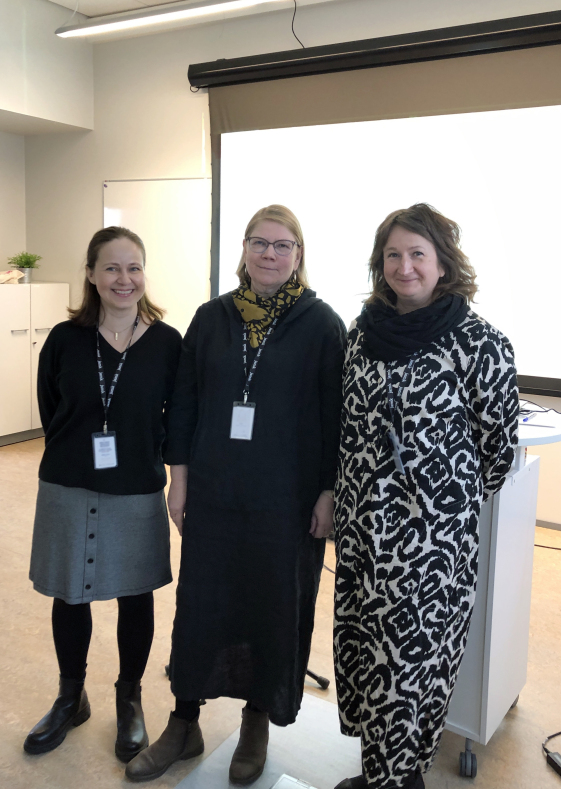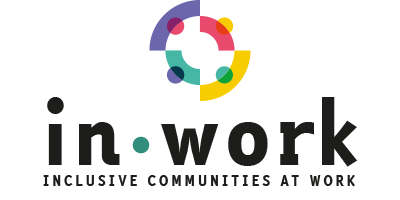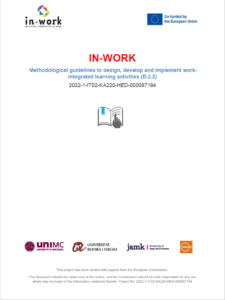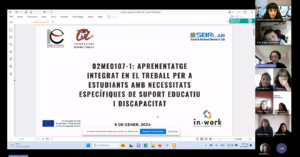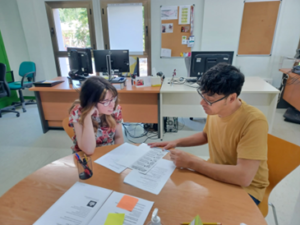The Finnish team of the IN-WORK project organized a seminar on April 23, 2024, for degree guidance counselors, special education teachers, and other interested parties on the theme “Who supports the learner – experts’ afternoon.” The event was held as a hybrid to allow participation from across Finland. We had participants from both universities and universities of applied sciences, but the event also attracted personnel from vocational education. Throughout the project, we have noticed the importance of sharing and developing work-integrated learning (WIL) in collaboration across different levels of education. This collaboration is crucial because students transition from secondary to tertiary education, and often the need for support continues in their new studies.
The aim of the seminar was to stimulate discussion on how the working life, learning in the workplace, and support for tertiary education are interconnected. The seminar also aimed to disseminate insights and ideas from the project on how to identify students in need of support in WIL and strengthen the readiness of teachers and workplace supervisors support these students. During the seminar, project workers presented the project in general and specifically the results obtained in the third work package of the project.
“The accessibility plan for higher education and higher education institutions” was adopted in Finland in 2021 (http://urn.fi/URN:ISBN:978-952-263-838-0). Each higher education institution must draw up its own accessibility plan based on the plan. At the seminar, the accessibility coordinator of Jyväskylä University of Applied Sciences (Jamk) explained the concept of accessibility and the accessibility work at Jamk. The IN-WORK project highlighted that although accessibility has been examined in the activities of educational institutions from many different perspectives, the working life as a learning environment has been left out of consideration.
In her presentation, Tiina Parviainen, an expert from the IN-WORK project and a dissertation researcher, examined the skills and competencies that tertiary students need in their studies. Her presentation sparked lively discussion. To what extent do students need certain skills when starting their studies, and how can these skills develop during their studies? Who can teach and how should these skills be taught to students? Can work-integrated learning also support metacognitive skills needed in studying and provide students with a positive experience that enhances self-esteem and carries over to theoretical studies?
A special education teacher from Jamk University of Applied Sciences shared insights into her work and how learning support is organized at Jamk. Since there is no legislative definition for special support in tertiary education, each institution can organize support in its own way. In practice, various models, and professional groups responsible for learning support have emerged in higher education institutions. These professionals have not extensively integrated into the working life; rather, their tasks revolve around supporting students within the institution and, to some extent, consulting teachers. The IN-WORK project has highlighted the importance of special education teachers and other teachers as societal influencers. The emphasis on this perspective has led to the addition of a study module focusing on collaboration with the working life in the new curriculum for special education teachers at Jamk.
